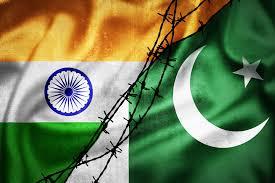
Introduction
Maintaining a healthy weight in Pakistan can be challenging. Our culture loves food—biryanis, parathas, halwa, and rich curries—but it often lacks regular physical activity. Many people struggle with weight gain, belly fat, or weak metabolism without knowing how to manage it in a realistic, sustainable way. This article shares practical tips tailored to the Pakistani lifestyle for staying fit without extreme diets or gym memberships.
Why Maintaining a Healthy Weight Matters
Being overweight or obese increases the risk of:
- Diabetes (especially Type 2)
- High blood pressure
- Heart disease
- Joint problems
- Sleep apnea and low energy
- Depression and low self-esteem
In Pakistan, where fast food and sugary chai have become the norm, staying within a healthy weight range is more important than ever.
What Causes Weight Gain in Pakistan?
- High-carbohydrate diet (roti, rice, sweets)
- Overeating at dinner or late-night meals
- Lack of physical activity
- Emotional eating due to stress
- Consumption of sugar-rich beverages (chai, soft drinks, juices)
- Skipping breakfast and overeating later
Signs You Need to Focus on Your Weight
- Your clothes feel tight, especially around the waist
- You get tired easily or feel lazy often
- You avoid physical activity
- You’ve gained 5kg or more in the past 6 months
- Your BMI (Body Mass Index) is above 25
10 Practical Tips to Maintain a Healthy Weight in Pakistan
1. Control Your Portion Sizes
Most weight gain happens not from what you eat, but how much you eat. Use smaller plates, and avoid second servings.
2. Don’t Skip Breakfast
A healthy breakfast jumpstarts your metabolism. Try eggs, paratha with less oil, yogurt, or a banana with nuts.
3. Cut Down on White Rice and Roti
Replace half of your white rice with vegetables or salad. Limit yourself to 1–2 rotis made with whole wheat (chakki atta).
4. Avoid Sugary Chai and Drinks
Limit chai to 1–2 cups a day with less sugar or none. Avoid soft drinks and packaged juices entirely—they are full of empty calories.
5. Walk Daily
You don’t need a gym. A 30-minute brisk walk in your street or park can burn calories and improve metabolism.
6. Drink More Water
Many people confuse thirst with hunger. Drink 8–10 glasses of water a day to feel full and stay hydrated.
7. Eat Dinner Early
Try to eat 2–3 hours before bed. Avoid heavy, oily meals at night. Late dinners are a major reason for belly fat.
8. Add Fiber to Your Diet
Fiber-rich foods like fruits, vegetables, daal, chana, oats, and brown bread help you feel full longer and improve digestion.
9. Practice Mindful Eating
Avoid eating while watching TV or on your phone. Focus on your meal—it helps prevent overeating.
10. Weigh Yourself Weekly
Track your weight every Sunday morning. This keeps you accountable and helps you make timely changes.
Healthy Pakistani Meal Example for a Day
- Breakfast: 1 boiled egg + 1 slice brown toast + chai without sugar
- Lunch: Grilled chicken or daal + salad + 1 roti
- Snack: Handful of almonds or fruit
- Dinner: Light sabzi or soup + salad + 1 roti (if needed)
Final Thoughts
You don’t need fancy diets or fitness apps to maintain a healthy weight. With simple changes in how and when you eat, and by adding small physical habits to your day, you can live a healthier life—without giving up traditional Pakistani food. Balance is the key.